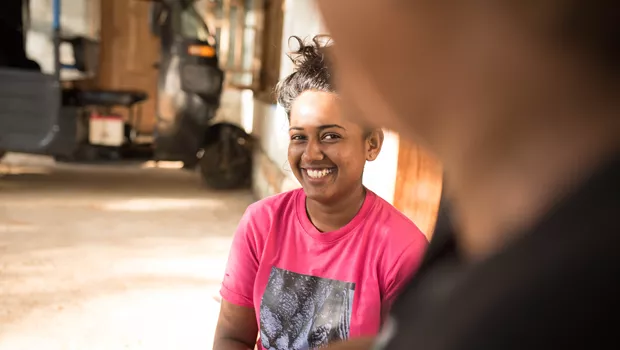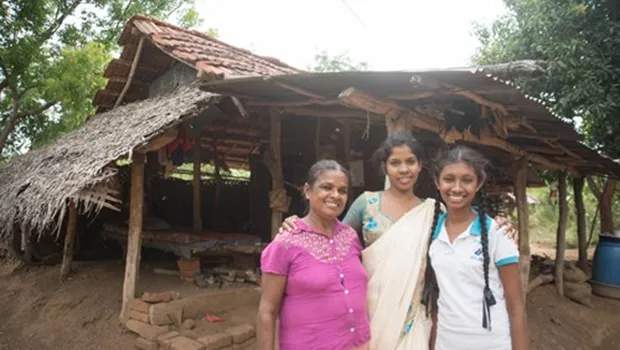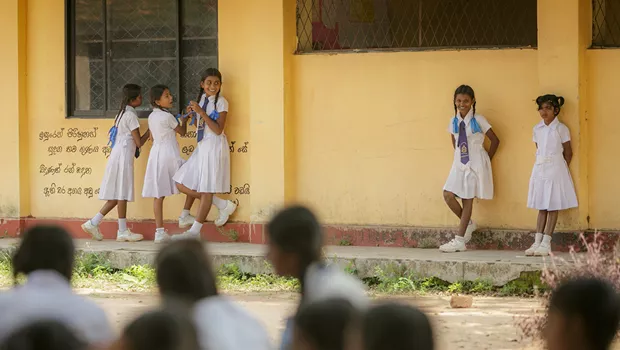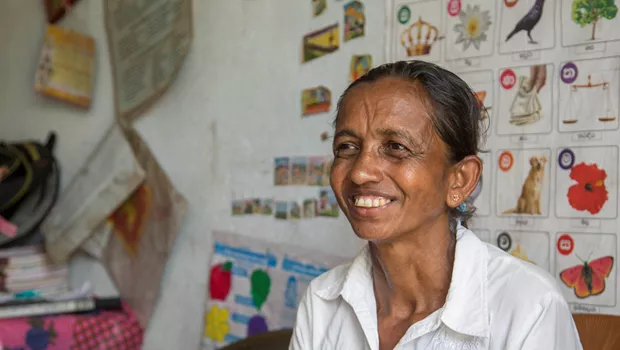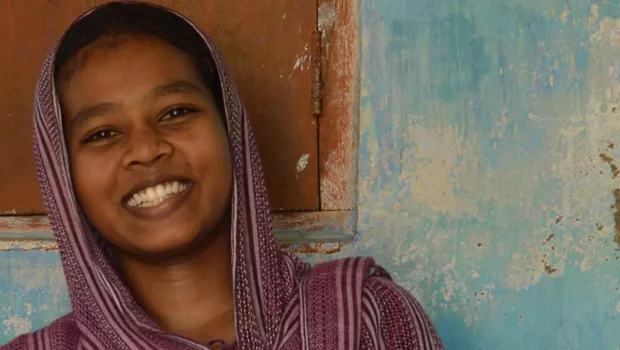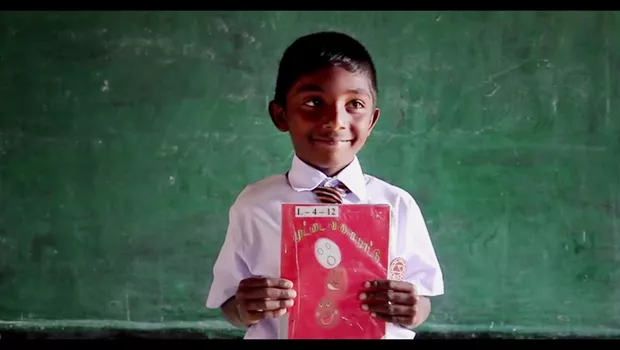How Two Girls from Sri Lanka’s Plantation Slums Went From Dropping Out of School to Passing on Their Love of Learning
November 04, 2015
As you drive past the lush green plantations of Hatton, known for its Ceylon tea, you can’t help but roll down your windows to smell the tea leaves wavering in the fresh air and gaze at the rolling landscape around you. You might see the smiling faces of the tea pluckers, many of whom live in crowded conditions on the estates. In spite of the beauty surrounding them and tea being one of the Sri Lanka’s most profitable cash crops, families who work on the estates are among the nation’s poorest, with one in three children classified as underweight and 40 percent of babies born with extremely low weight.
“These disadvantaged children often grow up to be disadvantaged fathers and mothers,” said Ranjani, a social mobilizer, or mentor, in Room to Read Sri Lanka’s Girls’ Education Program. “In most cases, the girls drop out of school and marry young because their families can no longer provide for them.”
Four years ago, best friends Prashanthi and Mogandashi, both raised in the “line-room” slums of Hatton’s tea estates, faced a similar fate. At 14 years old they had to drop out of school to help their families survive and didn’t have much more to look forward to than an early marriage. But what happens when girls like Prashanthi and Mogandashi are given a chance at education and the support they need to finish school?
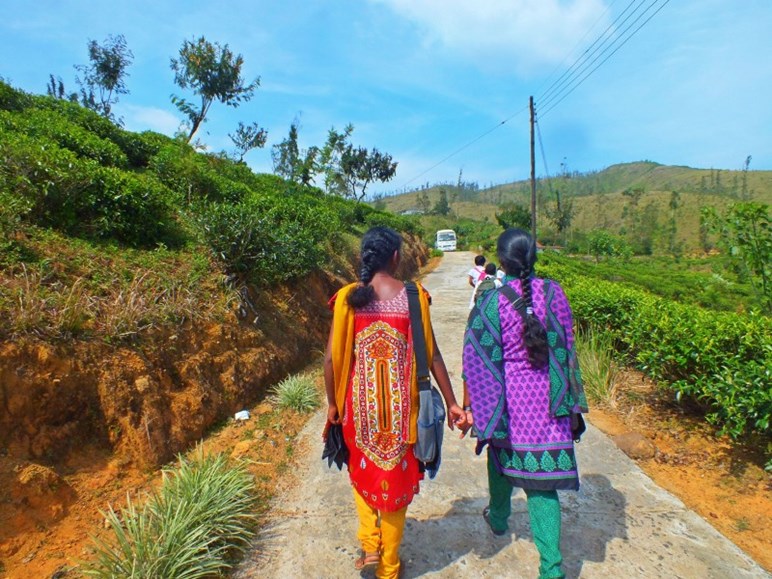
Girls’ Education Program alumnae and best friends Prashanthi and Mogandashi walk home together. Inspired to pass on what they learned, the 18-year-olds began tutoring children living in the line-room slums.
“She wouldn’t let me drop out”
Prashanthi’s father, a tea plucker who earned less than two dollars a day, died when she was four years old and her mother lost her ability to walk soon after. “I was a school dropout. I did not understand why we should study and I did not have the money to go to school anyway,” said Prashanthi, who is now 18. “It was important I stay at home and take care of my mother while my brother worked on the plantation.”
When Ranjani heard Prashanthi had stopped going to school she began visiting her at home. “Ranjani wouldn’t let me drop out,” said Prashanthi. “She would come to my home several days a week and just talk with me. She was persistent in the most sisterly way and her encouragement was inspiring.” In 2009 Prashanthi returned to school and joined Room to Read’s Girls’ Education Program.

The lush, serene tea estates of Hatton belie the daily struggles of the plantation workers, especially the women and girls who carry the majority of the workload.
The program, which helps ensure girls can stay in school and complete their secondary education, provided Prashanthi with funding for transportation, pens, books, and even meals, as well as life skills education and continued support from Ranjani. Five years later Prashanthi graduated from school and is hoping to start at the university next year. “Throughout the program, Room to Read helped me realize the value of education, how it could help me help my family. It was a difficult time for me,” Prashanthi said through her tears, “but I did it!”
“My life changed”
Prashanthi’s best friend Mogandashi also had to drop out of school when her family could no longer afford it. Mogandashi’s mother is a tea plucker and her father works as a laborer in Colombo where he struggles to earn a living for the family. “My father works very hard and we rarely get to see him,” Mogandashi said as she wiped her tears. “We barely have enough money to eat and the little money he earns he sends to us.
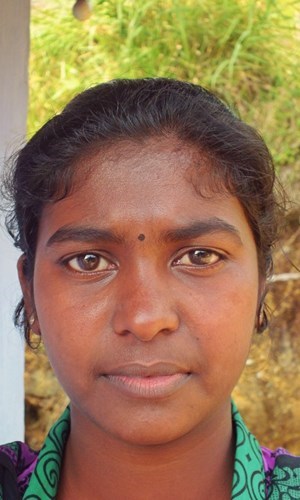 Girls’ Education Program alumna Mogandashi is waiting to find out if she got into university.
Girls’ Education Program alumna Mogandashi is waiting to find out if she got into university.
Just as with Prashanthi, Ranjani began visiting Mogandashi at home to convince her to return to school as a Room to Read’s Girls’ Education Program participant.
“Room to Read came into my life and provided the support I needed,” said Mogandashi. “My life changed.” Mogandashi is now a proud graduate of secondary school and is determined to go to university next year to become a bank manager.
“This way I hope to earn enough so my father can retire,” she said. “My dream is to be able to support my parents.”
The impact of an individual
Inspired by their social mobilizers and teachers, Prashanthi and Mogandashi began tutoring the children in the estate slums.
“Room to Read helped me realize the impact an individual can have on a child, and this inspired me to encourage the children in my community to study,” said Prashanthi, who juggles tutoring with her chores as well as the computer and English courses she’s taking in preparation for university. Over 20 children crowd into her small room and sit on floor mats, but neither they nor Prashanthi seem to mind.
“Whether it is math or reading, I want to help them. I understand how they feel and so my hope is that even while I am away at university they will remain inspired and find the courage to carry on — to continue, graduate and work hard towards a better future,” Prashanthi said.
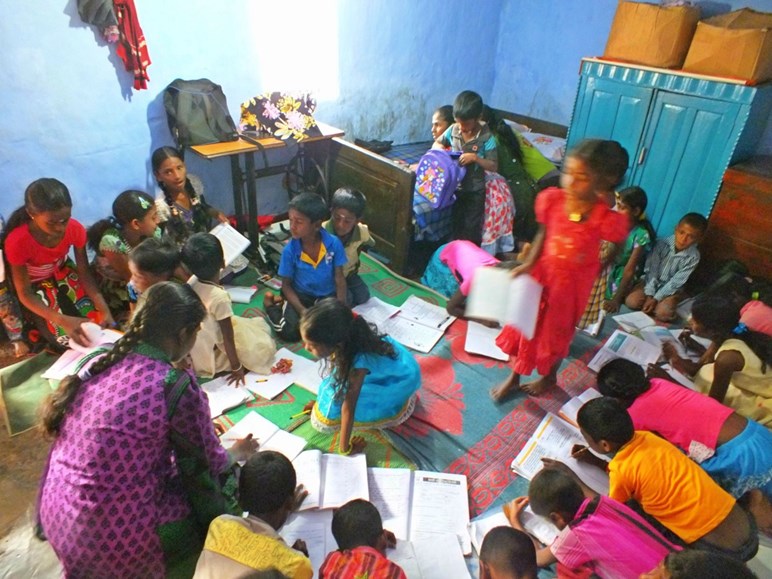
Girls’ Education Program alumna Mogandashi welcomes over 20 children from the tea estates in her small room for classes.
Mogandashi hopes to teach children financial literacy someday. Until then, she too is offering classes to the children from the line room slums. “I want to encourage them to study and create their life in a positive way,” Mogandashi said. “It is important to me that I give back to my community in any way I can.”
The ripple effect
In only four years, Prashanthi and Mogandashi went from being 14-year-old drop outs to the first in their families to graduate secondary school. Today they are creating a better life for their families and a better way for their communities by passing on their love of learning.
The good news is that Prashanthi and Mogandashi are far from being outliers. Educating girls has an empowering effect on their communities because girls reinvest their knowledge and income back into their families and communities, helping to bring an end to poverty for themselves and for the world.
Inspired by the potential of educating the world’s girls? Learn more about their stories. Follow us on Twitter and Instagram.
Click to learn more about Room to Read’s Girls’ Education Program.

